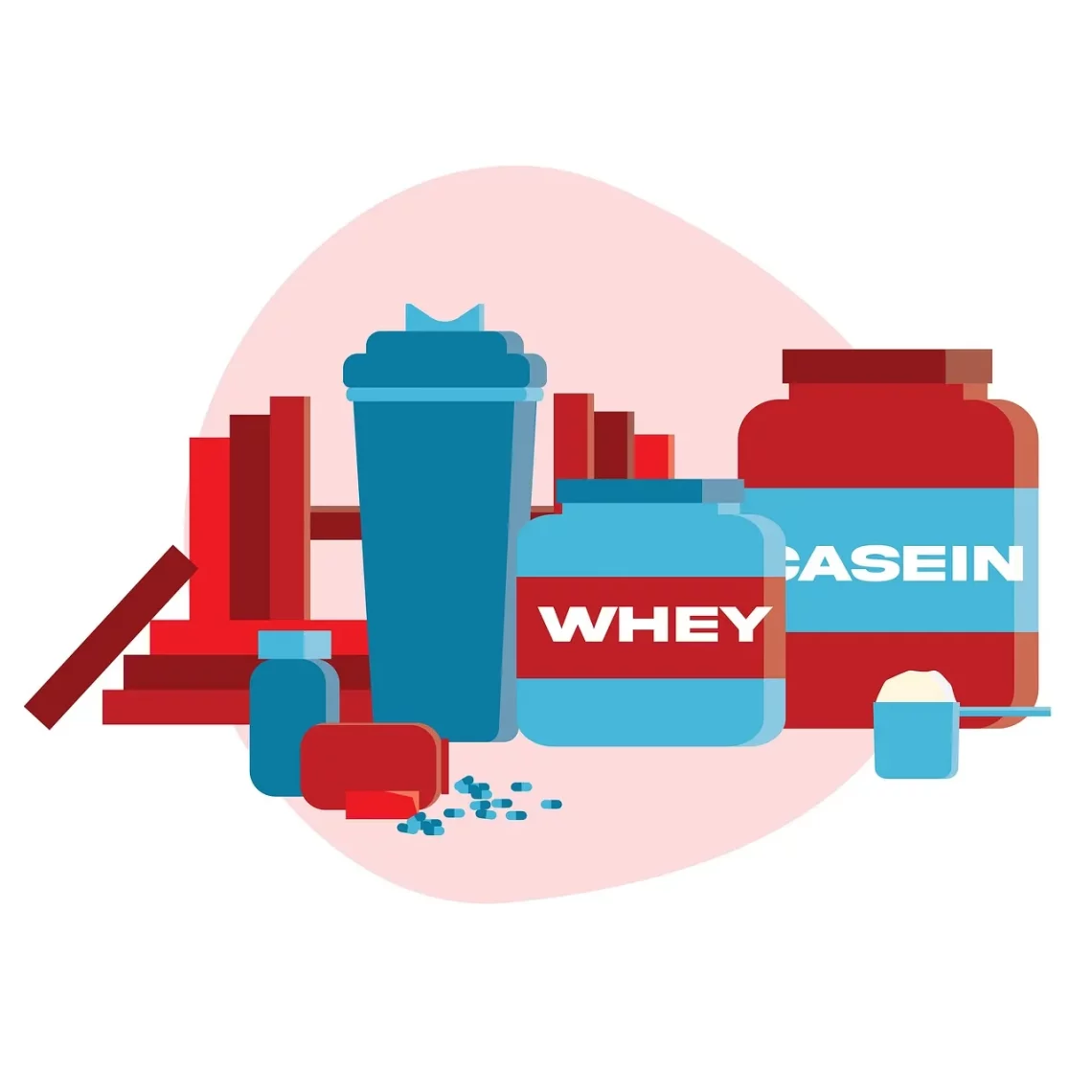
The Benefits of Low Salt Protein Powder for Health and Fitness
Low salt protein powders have gained significant attention in recent years, especially among health-conscious individuals and fitness enthusiasts. With an increasing awareness of the link between sodium intake and various health issues, low salt options present an attractive choice for those looking to supplement their diets without excess sodium. Traditional protein powders often contain high levels of salt, which can contribute to hypertension and other cardiovascular concerns. By choosing low salt alternatives, consumers can enjoy the benefits of protein supplementation without compromising their health.
In addition to the health implications, low salt protein powders can also enhance athletic performance. Many athletes are turning to these supplements to support their training regimens while maintaining a balanced diet. As the fitness industry evolves, so do the formulations of supplements, and low salt protein powders represent a key innovation. These powders not only cater to individuals with dietary restrictions but also appeal to those seeking cleaner, healthier options. As the demand for clean-label products continues to rise, understanding the benefits associated with low salt protein powders becomes increasingly important for anyone looking to optimize their health and fitness journey.
Understanding Sodium and Its Impact on Health
Sodium is an essential mineral that plays a vital role in several bodily functions, including fluid balance, nerve transmission, and muscle contraction. However, excessive sodium intake has been linked to numerous health issues, particularly hypertension, which affects millions of people worldwide. The typical diet often includes more sodium than necessary, primarily from processed foods, which can lead to negative health outcomes.
High sodium levels can cause the body to retain water, increasing blood volume and, consequently, blood pressure. This puts additional strain on the cardiovascular system and can lead to serious conditions such as heart disease and stroke. The American Heart Association recommends limiting sodium intake to less than 2,300 milligrams per day, with an ideal target of no more than 1,500 milligrams for most adults.
For individuals who are physically active, managing sodium intake becomes even more critical. While athletes lose sodium through sweat during exercise, excessive intake can counteract the benefits of their physical activities. This is where low salt protein powders come into play, offering a way to enhance protein intake without contributing to high sodium levels. By choosing low salt options, individuals can support their muscle recovery and growth while maintaining a healthy sodium balance.
Moreover, reducing sodium intake can lead to improved overall health outcomes. Studies have shown that lower sodium diets can help reduce blood pressure and decrease the risk of heart disease. Transitioning to low salt protein powders can be a practical step toward adopting a healthier lifestyle. By making informed choices about protein supplementation, individuals can take charge of their health while still meeting their fitness goals.
Benefits for Fitness Enthusiasts
For fitness enthusiasts and athletes, protein is a crucial component of their nutritional regimen. It supports muscle repair, growth, and overall recovery after intense workouts. Low salt protein powders provide an excellent source of high-quality protein without the added sodium that could hinder athletic performance.
One significant benefit of low salt protein powders is their ability to help maintain hydration. Sodium can contribute to fluid retention, which may lead to bloating and discomfort, especially during exercise. By opting for low salt options, athletes can avoid these issues and improve their hydration levels. Proper hydration is essential for optimal performance, as even slight dehydration can negatively impact endurance and strength.
Additionally, low salt protein powders often contain a higher concentration of essential amino acids, which are crucial for muscle recovery. These amino acids play a vital role in repairing muscle tissue that is broken down during exercise. By facilitating recovery, low salt protein supplements can help athletes bounce back quicker, allowing them to train harder and more frequently.
Moreover, low salt protein powders are often made from high-quality ingredients that cater to various dietary preferences. Many brands offer plant-based options, making it easier for vegans and vegetarians to incorporate protein into their diets without compromising their values. This inclusivity in product offerings ensures that everyone can benefit from protein supplementation, regardless of their dietary choices.
In summary, low salt protein powders present numerous advantages for fitness enthusiasts. They provide essential nutrients without the drawbacks of high sodium content, support hydration, and aid in muscle recovery. As more individuals recognize these benefits, low salt protein powders are likely to become a staple in the fitness community.
Choosing the Right Low Salt Protein Powder
Selecting the right low salt protein powder can be a daunting task, given the plethora of options available on the market. With various types of protein sources, flavors, and formulations, it is essential to consider several factors to find the best fit for your needs.
Firstly, it’s crucial to look at the protein source. Common options include whey, casein, soy, pea, and rice protein. Whey protein is known for its quick absorption and high biological value, making it an excellent option for post-workout recovery. However, those with lactose intolerance or dairy allergies may prefer plant-based options like pea or rice protein, which also offer significant benefits without the added sodium.
Next, consider the ingredient list. A high-quality low salt protein powder should have minimal ingredients, avoiding fillers, artificial flavors, and excessive sugars. Look for products that use natural flavors and sweeteners to enhance taste without compromising health. Additionally, some brands may fortify their protein powders with vitamins and minerals, providing extra nutritional benefits.
Taste and texture are also important factors to consider. Many low salt protein powders can have a chalky or gritty texture, which may not be appealing to everyone. It’s advisable to read reviews or sample different products to find one that suits your taste preferences.
Lastly, pay attention to the sodium content. While low salt protein powders are designed to have reduced sodium levels, it’s essential to check the nutrition label to ensure that the product aligns with your dietary goals. Aim for protein powders that contain less than 100 milligrams of sodium per serving for optimal health benefits.
In conclusion, choosing the right low salt protein powder involves careful consideration of protein sources, ingredient quality, taste, and sodium content. By making informed decisions, individuals can enjoy the benefits of protein supplementation while supporting their health and fitness objectives.
Incorporating Low Salt Protein Powder Into Your Diet
Integrating low salt protein powder into your daily routine can be both simple and enjoyable. There are numerous ways to incorporate these supplements into your meals and snacks, making it easy to meet your protein needs without the added sodium.
One of the most common methods is to blend protein powder into smoothies. Combining low salt protein powder with fruits, vegetables, and a liquid base such as almond milk or water creates a nutritious and delicious drink. This option is perfect for breakfast or a post-workout snack, providing energy and recovery essentials.
Another great way to use low salt protein powder is in baking. You can add it to pancake or waffle batter, muffins, or energy bars to boost the protein content of your favorite recipes. This not only enhances the nutritional value of your treats but also helps you reach your daily protein intake in a tasty way.
For those who prefer savory options, consider adding low salt protein powder to soups, sauces, or casseroles. It can act as a thickening agent while contributing protein without altering the flavor significantly. This versatility makes it easy to enhance your meals without sacrificing taste or health.
Additionally, low salt protein powders can be mixed into yogurt or oatmeal for a quick and nutritious breakfast or snack. This combination provides a satisfying meal that keeps you full longer, thanks to the added protein.
In summary, incorporating low salt protein powder into your diet can be done in various ways, from smoothies to baked goods. This flexibility allows you to enjoy the benefits of protein supplementation while maintaining a healthy, low sodium lifestyle.
In conclusion, low salt protein powders offer numerous health and fitness benefits, making them an essential addition to many diets. They support muscle recovery, aid in hydration, and allow individuals to manage their sodium intake effectively. However, it’s important to choose the right product and incorporate it wisely into your diet. Always consult with a healthcare professional before making significant changes to your nutrition, especially if you have underlying health conditions. This article is not intended as medical advice.




